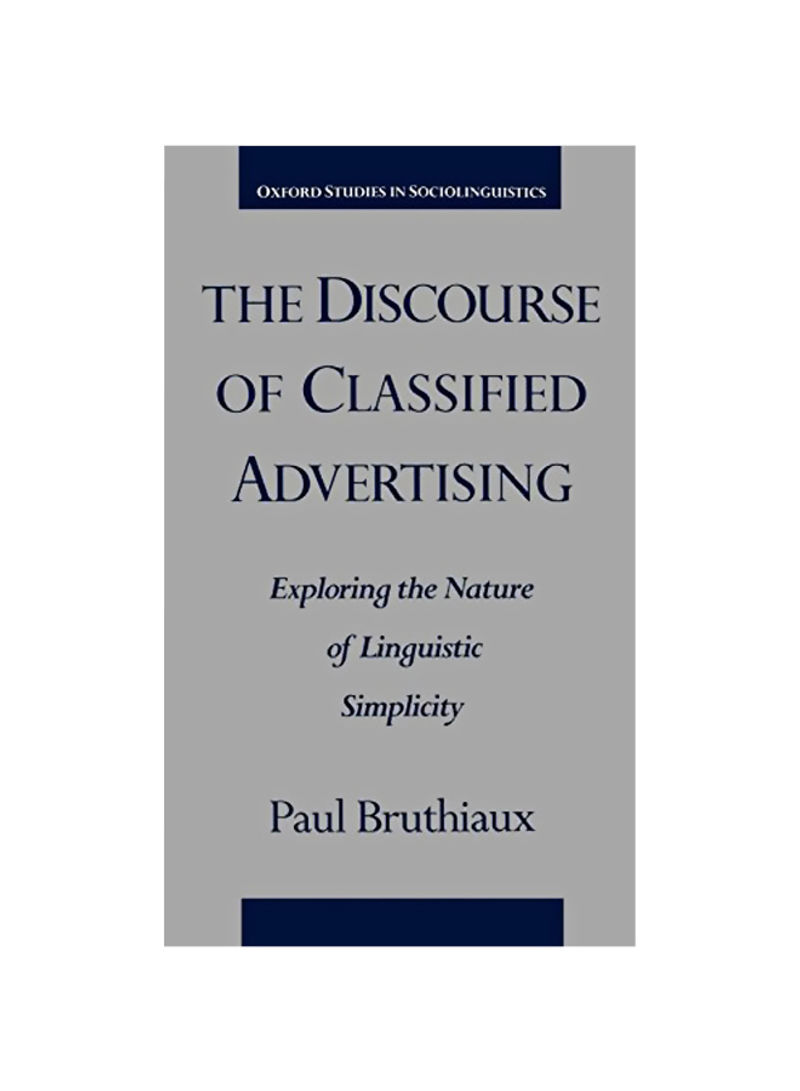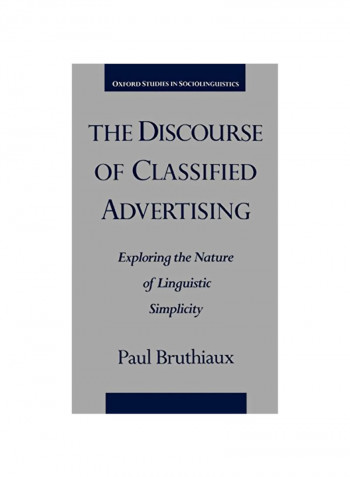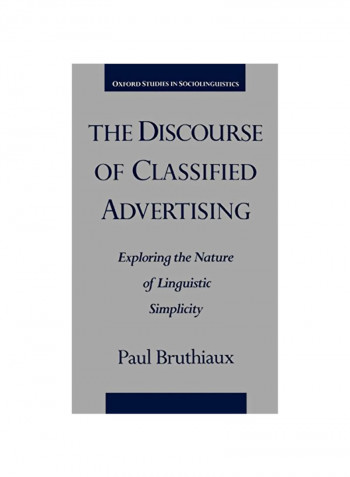The Discourse Of Classified Advertising : Exploring The Nature Of Linguistic Simplicity Hardcover
Recommend
Sort by
Rating
Date
Specifications
Author 1
Paul Bruthiaux
Book Description
Linguists who have studied simplified varieties of a given language, such as pidgins or the language of care-givers, have tended to explain similarities in their structure by the fact that they use the same mechanisms of simplification. Bruthiaux tests this idea by looking at the structure of classified ads in American English, using a body of 800 ads from four categories: automobile sales, apartments for rent, help wanted, and personal ads.Bruthiaux's thesis is that strict, uniform constraints on space should result in uniformly simple texts, no matter which category they are in, and that any variation would be due to the particular needs of each category. To prove this he describes the linguistic structure of classified ads, and shows that they are characterized by a minimal degree of morphosyntactic elaboration. He then examines aspects of their conventions to highlight the role of pre-patterned and prefabricated segmentswhose collocational rigidity may force the inclusion of otherwise dispensable items. He finds that there is indeed significant variation across ad categories in terms of morphosyntactic elaboration, and concludes that this is due to a greater or lesser need to be explicit, as well as a greater or lesseranticipation of interaction. Finally, he examines the implications of these findings for the study of linguistic simplification and register variation.
ISBN-13
9780195100327
Language
English
Publisher
Oxford University Press, USA
Publication Date
11-07-1996
Number of Pages
224
Editorial Review
Bruthiaux's concise treatment of the specialized register of classified advertising covers many issues that are important in all ESP work ... I found the book clearly written, with frequent summary statements that made it easy to track analyses and arguments that had been presented ... Bruthiaux's volume makes valuable contributions, including clearly showing how issues important to ESP are manifest in the discourse of classified ads. * Susan Conrad, Iowa State University *



